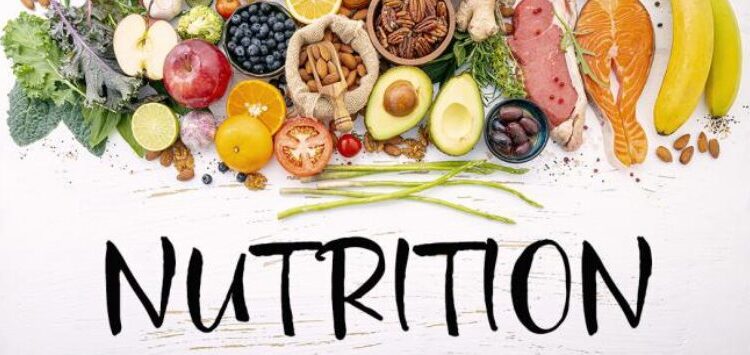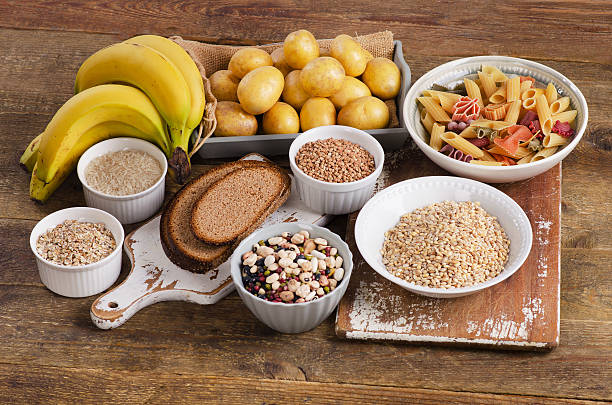
Running is a demanding sport that requires a well-balanced diet to support performance, endurance, and recovery. Nutrition plays a crucial role in a runner’s success, influencing energy levels, training effectiveness, and overall health.
This article explores essential nutritional facts for runners, covering macronutrients, micronutrients, hydration, meal timing, and supplements.
Understanding Macronutrients
Carbohydrates: The Primary Fuel Source
Carbohydrates are the body’s main energy source, especially for runners.
During prolonged exercise, glycogen (stored carbohydrates) is the primary fuel. Runners should aim for 55-65% of their daily caloric intake to come from carbohydrates.
Types of Carbohydrates
- Simple Carbohydrates: Found in fruits, dairy, and sugary snacks, these provide quick energy but may lead to a crash if consumed excessively.
- Complex Carbohydrates: Found in whole grains, legumes, and vegetables, these offer sustained energy release, making them ideal for runners.

Proteins: Essential for Repair and Recovery
Protein is vital for muscle repair and recovery after runs. Runners should consume 10-20% of their daily calories from protein sources.
Best Protein Sources
- Lean meats: Chicken, turkey, and fish.
- Plant-based options: Beans, lentils, tofu, and quinoa.
- Dairy: Greek yogurt and cottage cheese.
Fats: A Secondary Energy Source
Fats provide a concentrated energy source, especially during long runs. Runners should aim for 20-30% of their daily caloric intake from healthy fats.
Healthy Fat Sources
- Avocados
- Nuts and seeds
- Olive oil and fatty fish: Salmon, mackerel, and sardines
Micronutrients: The Unsung Heroes
Vitamins and Minerals
While macronutrients provide energy, vitamins and minerals play critical roles in energy production, immune function, and bone health.
Key Micronutrients for Runners
- Iron: Essential for oxygen transport in the blood. Sources include red meat, beans, and fortified cereals.
- Calcium: Vital for bone health. Found in dairy products, leafy greens, and almonds.
- Vitamin D: Supports bone health and immune function. Can be obtained from sunlight exposure, fatty fish, and fortified foods.
- B Vitamins: Important for energy metabolism. Found in whole grains, eggs, and leafy greens
Hydration: Staying Properly Hydrated
Staying hydrated is crucial for optimal performance. Dehydration can lead to fatigue, decreased performance, and increased risk of injury
How Much Water Do Runners Need?
- Before running: Drink 16-20 ounces of water 2-3 hours before a run.
- During running: Consume 7-10 ounces of water every 10-20 minutes.
- After running: Rehydrate with 16-24 ounces of water for every pound lost during the run.
Electrolytes: Replenishing Lost Minerals
In addition to water, runners should replenish electrolytes lost through sweat, especially during long runs.
Key Electrolytes
- Sodium: Helps maintain fluid balance. Found in sports drinks and salty snacks.
- Potassium: Supports muscle function. Found in bananas, oranges, and potatoes.
- Magnesium: Important for muscle recovery. Sources include nuts, seeds, and leafy greens.
Meal Timing: Optimizing Performance
Proper meal timing can enhance performance and recovery.
Pre-Run Nutrition
- Timing: Eat a carbohydrate-rich meal or snack 1-3 hours before running.
- Examples: Oatmeal with fruit, a banana with nut butter, or a whole-grain bagel.
Post-Run Nutrition
- Timing: Consume a combination of carbohydrates and protein within 30-60 minutes after running to maximize recovery.
- Examples: A protein shake with a banana, Greek yogurt with honey, or a turkey sandwich on whole-grain bread.
Supplements: To Consider or Not
While a well-balanced diet should provide all necessary nutrients, some runners may consider supplements.
Common Supplements for Runners
- Protein Powder: Useful for those who struggle to meet protein needs through food alone.
- Electrolyte Tablets: Helpful for long runs or intense training sessions.
- Omega-3 Fatty Acids: Support heart health and reduce inflammation.
Nutrition is a fundamental aspect of a runner’s training regime. By understanding macronutrients, hydration, meal timing, and the potential role of supplements, runners can optimize their diet to enhance performance and recovery. Here’s a summary of key points to remember.

Create a Balanced Meal Plan
To ensure you are meeting your nutritional needs, consider creating a meal plan that includes a variety of foods from all food groups.
Incorporate plenty of fruits, vegetables, whole grains, lean proteins, and healthy fats. A balanced diet will provide the necessary nutrients to support your running goals.
Listen to Your Body
Every runner is different, and nutritional needs can vary based on individual factors such as age, gender, body weight, and training intensity.
Pay attention to how your body responds to different foods and adjust your diet accordingly.
If you notice fatigue, digestive issues, or poor performance, it may be time to reassess your nutritional choices.
Experiment with Fueling Strategies
During training, experiment with different fueling strategies to find what works best for you.
This includes testing various pre-run snacks, hydration methods, and post-run recovery meals.
Understanding how your body responds to different types of fuel will help you optimize your nutrition for race day.
Prioritize Recovery
Recovery is just as important as training.
Focus on consuming nutrient-dense foods after your runs to replenish glycogen stores and aid muscle repair.
Incorporate protein and carbohydrates into your post-run meals, and consider including anti-inflammatory foods, such as berries and leafy greens, to support recovery.

Stay Informed
Nutrition science is constantly evolving, and it’s essential to stay informed about the latest research and recommendations.
Consider consulting with a registered dietitian or sports nutritionist who specializes in running to develop a personalized nutrition plan that meets your specific needs.
Final Thoughts
Nutrition is a vital component of a successful running journey.
By understanding the importance of carbohydrates, proteins, fats, vitamins, minerals, hydration, and meal timing, runners can better prepare themselves for training and competition.
Remember that every runner’s nutritional needs are unique, so take the time to experiment and discover what works best for you.
Prioritizing proper nutrition will not only enhance your performance but also contribute to your overall well-being as an athlete.
Embrace the journey and enjoy the benefits of fueling your body effectively!

Leave a Reply